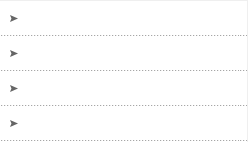The OSJSM UGME curriculum focuses on developing the key
competencies necessary for our students to become leaders in the
health care and academic systems of the future.
Competencies
Clinicians
• Demonstrate the ability to obtain a complete history and
perform a physical examination on patients in all age groups.
• Demonstrate the knowledge, skills and attitudes needed to
identify and diagnose individuals at risk for the most common and
life-threatening health problems, and initiate appropriate
management.
• Demonstrate the ability to obtain and record, on paper and
in electronic format, patient information in an accurate, concise
and organized manner in a variety of clinical settings.
• Develop learning strategies to maintain competence as a
clinician in his/her chosen field of practice.
Communicator
• Establish therapeutic, patient-centered communication
through shared decision-making and effective, efficient, empathetic
and ethical interactions with patients, families, colleagues and
caregivers.
• Elicit and synthesize relevant information and perspectives
from patients, families, caregivers and colleagues.
• Convey all information appropriately to patients, families,
caregivers and colleagues.
Collaborator
• Demonstrate knowledge of the roles, skills and
responsibilities of other members of the health care team.
• Demonstrate the ability to work effectively and share
decision-making in an inter-professional team while working toward
the same patient-centered goal.
• Demonstrate the ability to access community resources for
the benefit of patients.
Professional
• Demonstrate a commitment to patients, health professionals
and society through behaviors reflecting honesty, integrity,
compassion, empathy, respect and altruism consistent with the
Faculty of Medicine of the University of Ottawa Standards of
Ethical and Professional Behaviour.
• Maintain patient confidentiality and demonstrate sensitivity
and respect for patient rights, opinions, and diversity.
• Recognize, acknowledge and manage medical error in an
ethical, socially accountable and sensitive manner.
• Demonstrate an understanding of the evolving social contract
between physicians and society.
Health advocate
• Identify and advocate for an individual patient’s needs,
including physical, psycho-social, cultural and spiritual aspects
of health.
• Identify the heath care needs of communities and populations
and describe opportunities for health promotion and disease
prevention.
• Identify the specific determinants of health and use them to
promote the health of individuals and groups.
Scholar
• Demonstrate the ability to acquire and apply evidence-based
concepts and knowledge to clinical scenarios.
• Demonstrate the ability to access and critically appraise
the appropriate information and literature related to advancing
knowledge in health care.
• Develop the skills to effectively facilitate the learning of
persons or groups including colleagues, patients and families, and
other professionals.
Person
• Identify and appreciate the determinants of health for self
and for colleagues on the health care team.
• Identify individual, population, and system-level strategies
and resources to promote the health and well-being of physicians
and their families that take into account the diversity of
physician identities and realities.
• Demonstrate an understanding of the variety of career
options in the field.
• Apply skills and strategies designed to promote sustainable
personal and professional health and well-being.
Manager
• Demonstrate an understanding of health systems at a local,
regional, provincial/territorial, national and international level.
• Consider the appropriate use of the various health care
resources and facilities when making clinical decisions.





